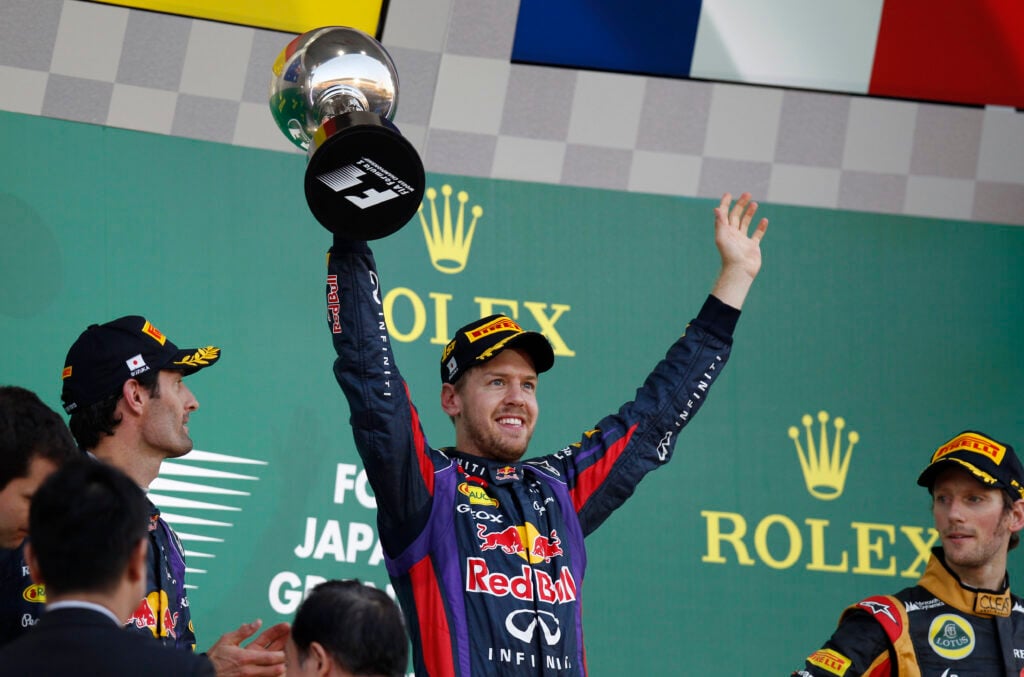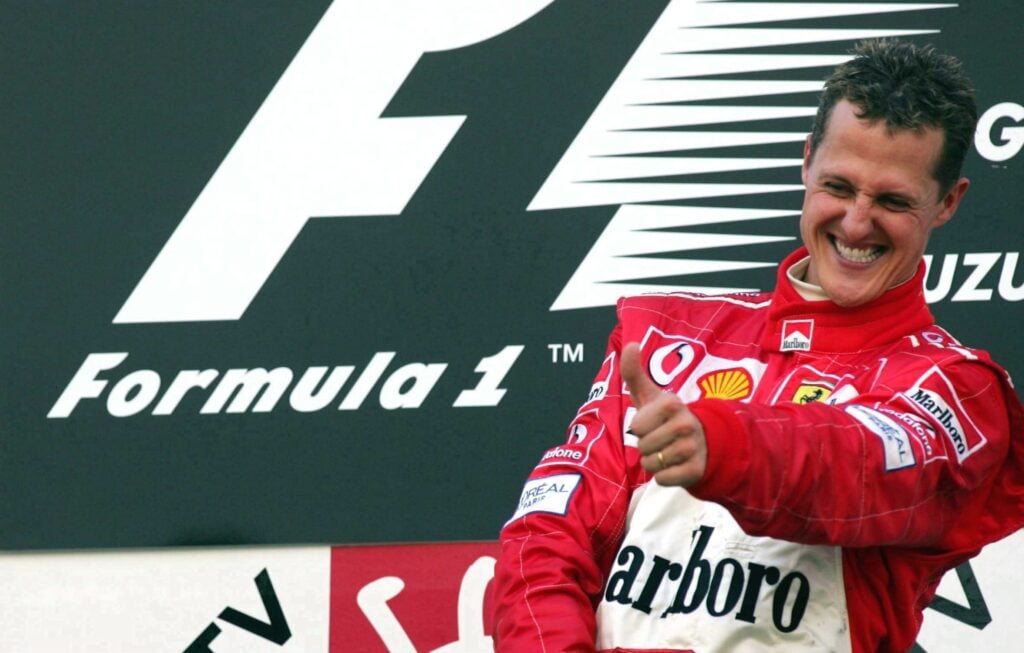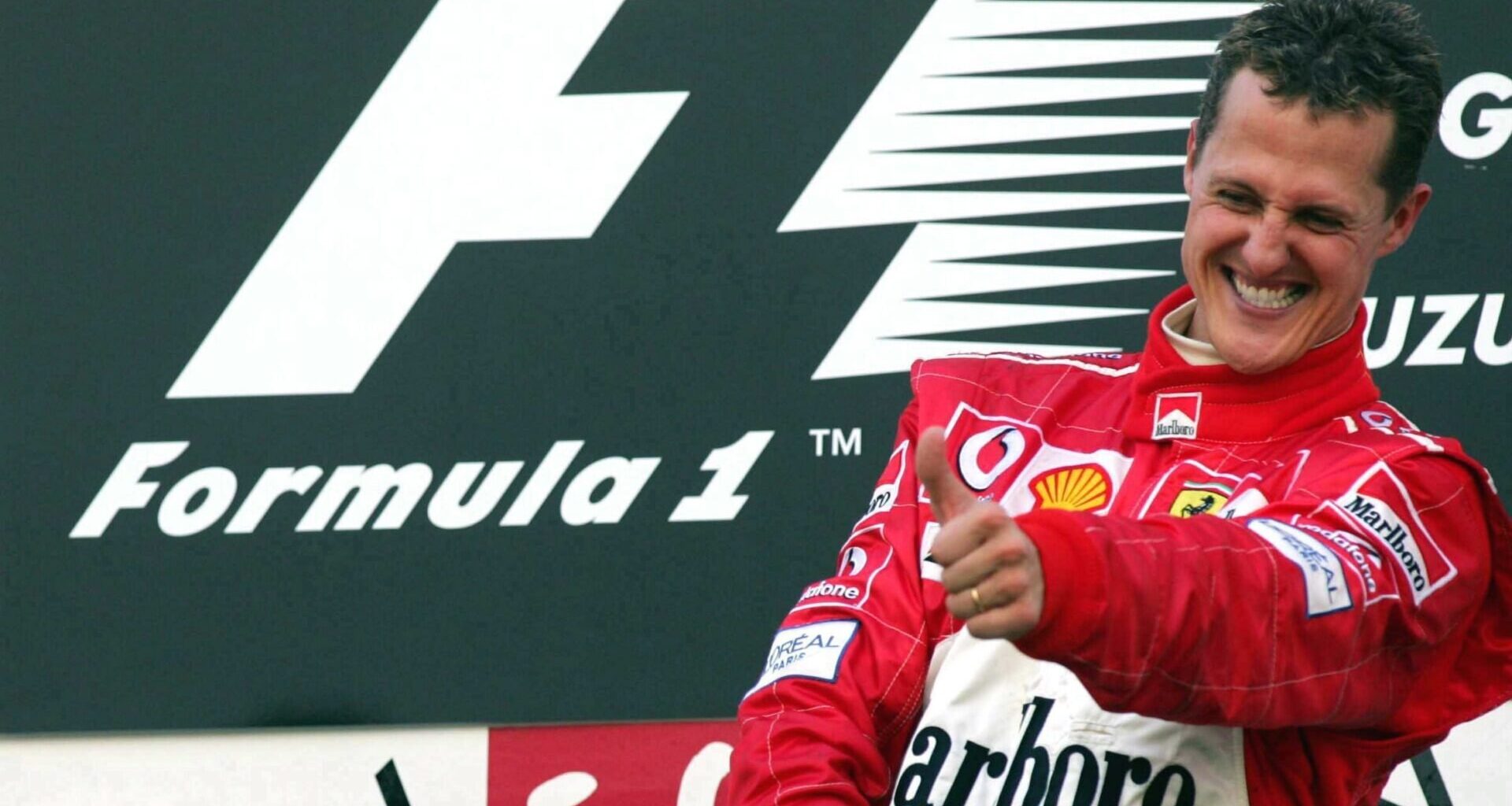Michael Schumacher won a record-setting seven F1 drivers’ championships and acted as a mentor for Sebastian Vettel in his fellow German’s four-time title-winning career.
Schumacher and Vettel were also the first Germans to win the F1 drivers’ championship and have to date only been joined by Nico Rosberg. The European country saw Schumacher earn their first world title in 1994, while Vettel later lifted his first of four successive titles in 2010.
Benetton carried Schumacher to his first titles in 1994 and 1995, before the Hurth native left for Ferrari and he returned the Scuderia to the summit with their first title in 16 years during the 2000 F1 season. He also retained the crown racing in red in 2001, 2002, 2003 and 2004.
Vettel won all four of his titles with Red Bull, having become the Milton Keynes natives’ first champion in the 2010 season and kept them atop the summit every term through the 2013 season. The two Germans also continue to rank highly in several statistical categories today.
 Photo by Hoch Zwei/Corbis via Getty ImagesMichael Schumacher couldn’t answer Sebastian Vettel’s request for help on how to master Suzuka’s first sector
Photo by Hoch Zwei/Corbis via Getty ImagesMichael Schumacher couldn’t answer Sebastian Vettel’s request for help on how to master Suzuka’s first sector
Schumacher and Vettel rank second and fourth for Grands Prix wins with 91 and 53 to their names. The pair also rank second and fourth for pole positions with 68 and 57, plus second and third for podiums with 155 and 122. Lewis Hamilton now leads in the three categories.
Yet even though Schumacher took six of his 91 wins at the Japanese Grand Prix, making the North Rhine-Westphalia native the most successful driver in the history of the Japanese GP, he could not answer Vettel’s question when the Heppenheim native started his career in F1.
Most successful drivers in the history of the F1 Japanese GP
Having seen Schumacher seal six wins at Suzuka, Vettel sought to learn how his compatriot aced the iconic Esses. But while Schumacher could not help, Vettel would become a master of Suzuka in his own right with four wins – a tally only Hamilton has since eclipsed with five.
Vettel told Auto Motor und Sport: “I remember calling Michael once. He had already retired. I wanted to know how he drove the first sector at Suzuka, because he was always so strong there. He replied, ‘I don’t know. What should I tell you now?’
“He didn’t describe to me in detail how he approached all the corners – only that he drove the section the way it felt right to him. He trusted that.”
Michael Schumacher is the most successful driver in the history of the F1 Japanese Grand Prix Photo by Martin Rose/Bongarts/Getty Images
Photo by Martin Rose/Bongarts/Getty Images
Schumacher won the 1995 Japanese GP for Benetton, before winning at Suzuka for Ferrari in 1997 and en route to his drivers’ titles in 2000, 2001, 2002 and 2004. Vettel later won the Japanese GP at the Honda-owned Suzuka circuit for Red Bull in 2009, 2010, 2012 and 2013.
Only Hamilton’s five Japanese GP wins rivals the Germans, although Red Bull’s current racer Max Verstappen is now rivalling them. Verstappen won the 2025 Japanese GP for his fourth victory at Suzuka so far, having also won the race for Red Bull during 2022, 2023 and 2024.
Suzuka has staged the Japanese GP 35 times throughout the race’s 39 appearances on F1’s calendar to date, with Fuji staging it four times. Schumacher further showed his excellence at the track with eight Japanese GP pole positions, three more than any other driver so far.
Vettel boasts the second-most poles at the Japanese GP with his five, yet Verstappen is now just one pole position away after scoring his fourth in a row in 2025. Ayrton Senna recorded three pole positions at the Japanese GP and Hamilton has taken two so far, for comparison.
